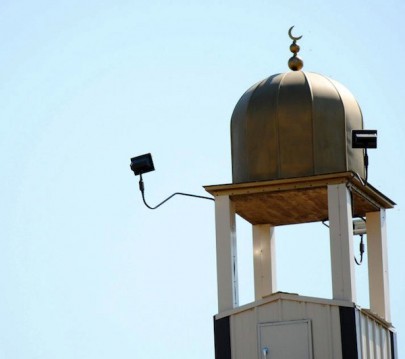
The Spokane Islamic Center wants something mosques all across the country are seeking and can’t seem to find — an educated, bilingual, experienced imam who understands American culture.
According to the report “The American Mosque 2011: Activities, Administration and Vitality of the American Mosque” by Ihsan Bagby, half of all mosques in the U.S. have no full-time staff, and only 44 percent of imams work as paid, full-time leaders.
January marks the 18th month that the Spokane community has been seeking a leader.
“It’s hard for a small mosque like ours to compete,” said Mamdouh El-Aarag, who serves on the board of the mosque.
According to Bagby’s study, only 36 percent of mosques with attendance between 101 and 200 have a full-time, paid imam. The Spokane mosque sees about 250 people for Friday prayers.
For now volunteers take turns delivering sermons and leading prayers. That’s been the routine since the Islamic Center was built in 2009. El-Aarag said it’s made the community strong, but has its downsides as well. He said the volunteers aren’t experts in Islamic scriptures and worship attendance isn’t as steady as it would be with a full-time imam.
“What we’re looking for is hard to find, it’s a hot commodity,” El-Aarag said. “One option is maybe downgrading our requirements and finding someone with not as much experience, someone we can help and work with.”
Professor Jocelyne Cesari, director of the Islam in the West Program at Harvard University, agrees that what the Spokane Islamic Center is seeking is in high command.
She said it’s because of the dearth of interdisciplinary training offered in the U.S. More programs would allow clerics to become competent in both Islamic theology and American culture, she said.
As of 2011, according to Bagby, 48 percent of imams had at least a bachelor’s degree in Islam. Of those, only six percent earned their degree in the U.S.
There are only two institutions in America where one can study to become an imam — The Institute for Social and Islamic Sciences in Virginia and Zaytuna College in California.
Cesari said because of this the Spokane Islamic Center may indeed have to make some comprises in its search. For example, she said, the community may have to choose between a charismatic person in tune with the young and professional audience, and an expert in theology trained outside the U.S.
The key to attracting an imam a competitive market, she said, is to make the position stand out.
“The major issue is to make the position attractive financially to young people and especially young couples. The challenge is to professionalize the imam position to ensure they get the most educated and competent persons,” she said.
El-Aarag said he’s certain the right imam will come along when the time is right.
“It will happen in due time, in God’s time,” he said. “We just have to keep looking.”






